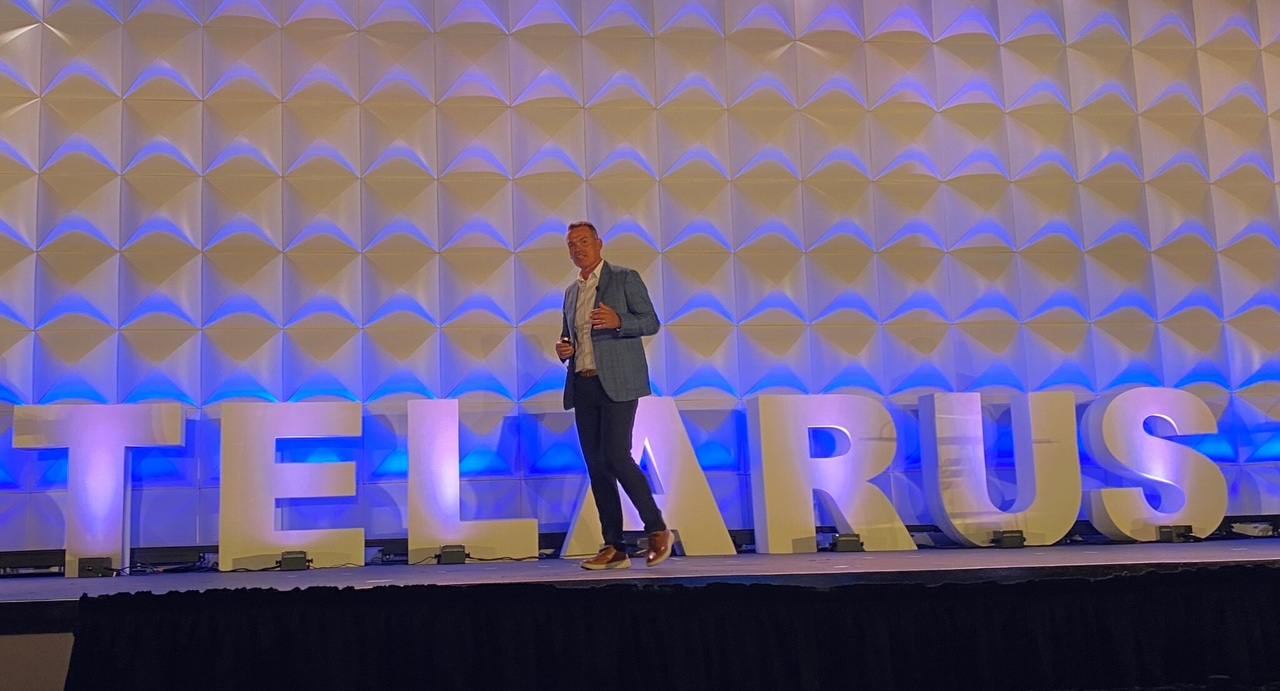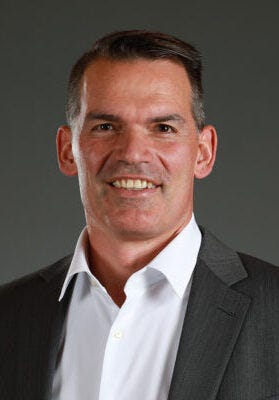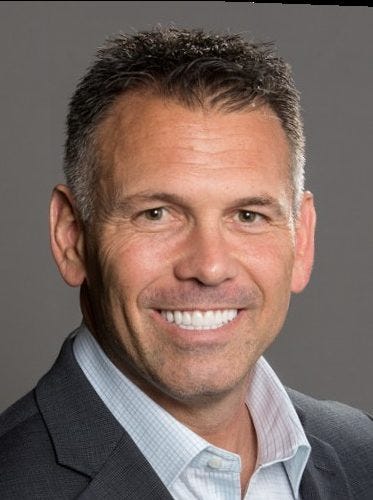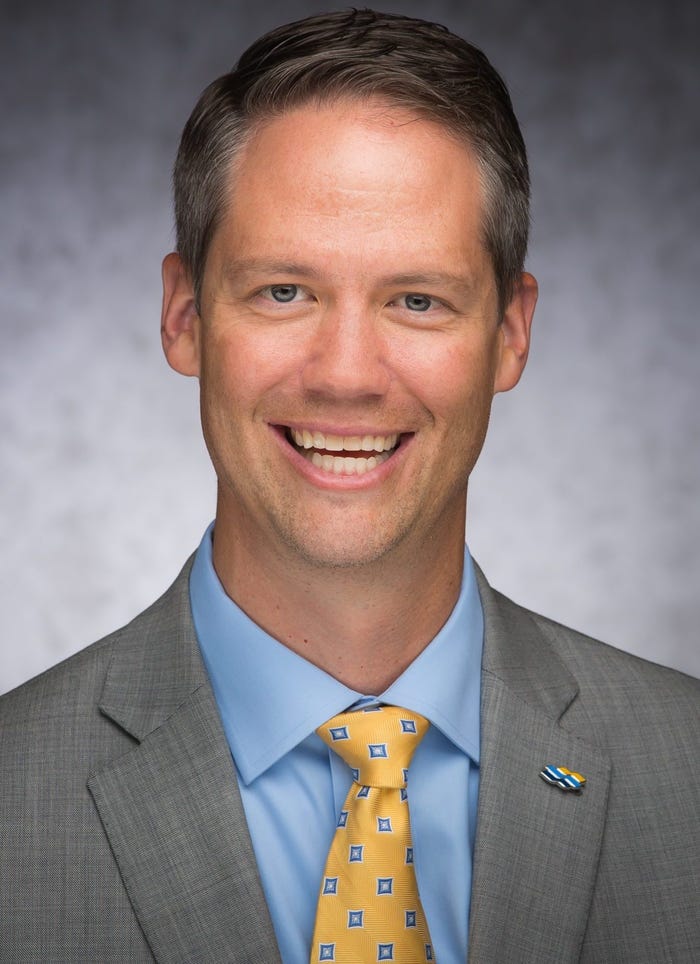Telarus: Technology Advisors Set to Seize Revived Tech Spend
Telarus shared numbers of its expanding partner base, and partners shared what it's like explaining their business model to clients.

TELARUS PARTNER SUMMIT – New data from technology solutions brokerage Telarus shows an openness from CIOs to engage more with technology advisors. However, the channel must make more strides to achieve mainstream acceptance.
Telarus at its annual partner summit shared a study it commissioned from Constellation Research on how technology decision makers perceive the technology advisor – historically known as the telecom agent – channel. The study, featuring responses from CIOs, chief digital officers, chief technology officers and chief digital and artificial intelligence officers, said showed widespread interest in using some form of a technology advisor for their purchasing decisions. Constellation vice president and principal analyst Dion Hinchcliffe said about 93% of CIOs rely on trusted technology advisors or want to. The survey concluded that “broad interest” exists for technology procurement advisory from people whom peers have recommended or possess deep expertise.

Constellation’s Dion Hinchcliffe
Ninety-three is a big number. But then comes the gap. Constellation in its 2023 Digital CXO Survey found that 48% of the top digital CXOs spend 25% or less through channel partners or other consultants. For Hinchcliffe, that gap points to an unmet need.
“Channel is underutilized. There’s an open opportunity, and there’s a hunger for it,” Hinchcliffe told an audience of Telarus channel partners in Dallas. “They just don’t clearly identify it as much as they could.”
IBIS World measured the U.S. management consulting industry at $329.7 billion in 2022. In contrast, Telarus CEO Adam Edwards, estimated that advisors generated $2.1 billion. But Edwards and peers in the tech services distribution (TSD) space are future-casting a world where technology advisors play the type of role that mega consultancies like Deloitte, PWC and KPMG currently play.

Telarus’ Adam Edwards
“When it becomes a normative behavior when people say, ‘We’ll just call McKinsey,’ that’s where we want to be,” Edwards said. “That’s where we need to arrive – when CIOs say, “Just talk to your advisor. Get that person in here.’ That’s the behavior we want. That behavior is not does not exist today, but it will. And when it does exist, that’s when we’ve really arrived.”

Select Communications’ Jerry Goldman
For Jerry Goldman and his company Select Communications, that sort of behavior exists for about 20% of customers. The rest may turn to Select for more one-off decisions or specific technology categories.
“It’s encouraging to hear that the numbers are high with CIOs wanting to lean into an outside source for advice or guidance. That’s encouraging. We see that as well as we go into the market,” said Goldman, who added that there remains work for Select and other partners to do in in growing market share and customer stickiness.
Spending Trends
Constellation’s research also points to a new wave of tech spending that partners will look to ride. The survey, conducted in May and June 2023, found that only 6% of CXOs viewed cost cutting as a top 2023 priority.
Topics like artificial intelligence (AI) and machine learning (ML) have captured the attention of the C-suite and given IT a wider leash for spending.
“A year ago, when we stood up here in front of you, AI was kind of a glimmer in the eyes. Now every CEO is been asked by boards whether she or he has an answer to, ‘What is ChatGPT?'” Telarus chief revenue officer Dan Foster said.
Hinchcliffe said boards are demanding their CIOs to make big moves to outpace the competition.
“Not soon, but now. So you’re gonna see a lot of buying and [attempts] to figure out what the tech stack is going to be. Lots of experiments, and then they’re going to figure out where that’s that’s actually going to go,” he said.

Telarus’ Dan Foster
This rush of investment represents a massive shift from when Constellation ran the same study in January.
“It was nuclear winter. Nobody was spending anything,” Hinchliffe said.
But while tech spending looks healthy, its dynamics have evolved. Ninety-one percent of CXOs said the buying cycle has become more complex in the last five years. That stems in part from increased bureaucracy and an increasing number of people involved in deals. Hinchcliffe said partners will benefited from helping buyers “streamline” those processes.
He also added that partners need to pay attention to “DX,” namely, digital experience that integrates the various experience silos: end customer, employee, partner, etc. Hinchcliffe said those tech stacks will increasingly come together.
Growing Partner Base
Foster rolled out several numbers demonstrating the increasing size of the Telarus partner base. He said 3,500 partners booked more than half a billion dollars in contract value in 2022. Moreover, 150 technology advisors booked more than $100,000 in new monthly recurring revenue in 2022. That came through both advanced solutions like UCaaS and CCaaS but also “double digit” network growth.
In addition, 940 partners signed up and placed orders with Telarus in the last 12 months, Foster said.
Telarus chief commercial officer Richard Murray told Channel Futures that Telarus has 65% more…… partners this year than it had last year.

Telarus’ Richard Murray
Part of that growth stems from 2022 acquisitions of TCG and TelAdvocate.
Amid those acquisitions, Telarus has expanded its tooling, having announced an expansion to its SolutionVue pre-sales suite in May. Murray said that toolset has helped Telarus engage with a larger number of partners and ultimately end customers. In the case of TCG, a significant portion of the end customer base falls into the SMB category.
And as other Telarus executives have told Channel Futures, Murray said Telarus’ increased scale and automation capabilities is allowing it to cater to end customers of all sizes.
“We want to do as many of them as we can; we just want to do them efficiently at scale,” Murray said. “And that’s candidly some of the reasons for our change. We’ve brought in some some folks and teams that understand how to do things of scale. We’ve gone and gotten talent that know how to do things at large scale organizations and still take care of partners.”
While the integration of TelAdvocate and TCG involved bringing those parties onto the same commissions system, Murray noted that Telarus has sought to support TCG’s unique field model. TCG differed from Telarus in that its channel managers operated in a more independent fashion. And Telarus wanted to hold on to “the goodness” of that model, Murray said.
“We had to understand that first and rationalize a little bit, but we actually believe in it as an additional go-to-market approach for us that we’re going to invest in,” he said.
The Changing TSD
Murray’s company CarrierSales merged with Telarus in 2017. But Murray pointed out that he didn’t sell CarrierSales. Rather, he said joining forces with Telarus made the most sense for him in light of what he perceived to be pending consolidation in the space.
“I didn’t take a dime, because I knew what this was going to become,” Murray said.
On its own, CarrierSales would have remained a strong, niche, regional player with strengths in contact center and some of the largest telcos, Murray said. But joining Telarus put it on the path to being a “market maker,” he said.
The technology services distributor/brokerage space has changed since that merger. One obvious change is the movement away from the term “master agent,” driven by DE&I advocates, vendor leaders, and the TSDs themselves conversing together. In a similar span of time, the space has seen significant M&A. ScanSource bought Intelisys. Sandler Partners bought X4. Avant bought PlanetOne. Bridgepointe bought Clover and others. AppDirect has bought a handful of TSDs.
But the changes are functional as well. One overarching trend is the increased visibility of the TSDs. Partners are no longer hiding the fact that they leverage TSDs for both supplier contracts and sales support.
“If you rewind five years to a decade ago, partners didn’t even want their customers to know that a TSD existed behind the scenes. And that is shifting and I think will continue to shift,” Murray said.
Other channel ecosystems see no scandal in a transparent distribution layer, Murray said.
“Everybody knows who CDW is. They’re buying their box through an MSP, who’s getting it from CDW. CDW is on the shipping label, and no one questions that. And I think the evolution of our industry as we become true technology distributors, is more and more partners embracing, ‘Hey, I am a top partner with Telarus, and because of that, I get access to their engineers. I get access to their RFP team, their project management team,’ and they’re using it as a badge. Our engineers are getting on calls and being introduced as a Telarus engineer.”
Similarly, partners would always have white-labeled the project management support they receive from Telarus. Now they aren’t hiding the source of that help, Murray said.
Don’t Call ‘Em Brokers
And just as the term “master agent” has slipped out of common parlance, agents are rarely called agents any more – let alone “subagents.” Edwards in his keynotes said he believes these partners – who distinctively earn their money through residual commission paid to them by their vendor partners – will be known in the long-term as “technology advisors.” Channel Futures has similarly adopted this terminology, while still referring to them as “agents” in the context of their vendor relationships.
But the term “technology advisor” requires explaining to the end customer, just like “agent” does. For example, clients might assume a technology advisor looks like…… a project-focused consultant.
“When I’ve approached CIOs that I had worked with in the past who know me and respect me, the first thing they say is, ‘Okay, do we need to put like a statement of work and a contract in place for the consulting piece of it?” said Curt Phare, who recently founded the technology advisor firm SafeCloud.

SafeCloud’s Curt Phare
While some enterprise-focused technology advisors charge for consulting, many offer their services free of charge to the customer. But that requires them explaining the fact that they earn their pay through residual supplier commissions.
“Sometimes it’s received well. Honestly, sometimes it’s not,” Goldman said. “The counter to that is, ‘If they’re paying you, they have to be charging me more.'”
But Goldman said there’s an easy response to that concern.
“I always end with, ‘I encourage you to go direct to the supplier to compare what price and terms you’ll get compared to me,'” he said.
Moreover, technology advisors say their residual commissions incentivize them to matchmake the best possible vendors for their clients. That outshines other partner models, such as resale-based system integrators and project-focused consultants, Edwards said.
“Nobody is better aligned with the customer outcome than we are. You don’t go in for a single project, charge a bill, get paid a check and then leave. It turns out we actually care about how that implementation goes. Not because we’re necessarily wonderful people, but because we get compensated over time as they are successful,” Edwards said. “So we are aligned economically with the customer, wanting them to have the best outcome. That small fact makes this model very different than any of the others.”
Phare said it’s important that customers better understand the way the model lends itself toward positive outcomes.
“We’re not just some guys that are going to schlep something at them because it��’s the SPIFF of the month. We’re looking at a long-term relationship. It’s about doing the right thing and building long-term relationships. The revenue will flow,” he told Channel Futures.
And the value prop extends beyond the compensation model. Goldman said technology advisors can help in post-sales implementation, and escalation. Having worked with these suppliers dozens, if not hundreds, of times gives partners both an intimate knowledge of a vendor’s inner workings as well as close access to higher ups to help escalate problems.
And it can be a challenge to communicate all of those nuances in a 30-minute discovery call with a potential client, Goldman said.
“All of that has to be communicated in a concise manner, while we’re saying, ‘Hey, we have suppliers of that can solve a problem,” Goldman told Channel Futures.
Hall of Fame
Telarus added two partners to its Hall of Fame: Strategic Telecom Partners and Invite Networks. Each Hall of Fame member has registered more than 100 consecutive selling months with Telarus.
“These are people who have demonstrated over the course of their career with us a consistent body of work that represents the true meaning of partnership,” Telarus chief product officer Patrick Oborn said.
Want to contact the author directly about this story? Have ideas for a follow-up article? Email James Anderson or connect with him on LinkedIn. |
Read more about:
AgentsAbout the Author
You May Also Like


